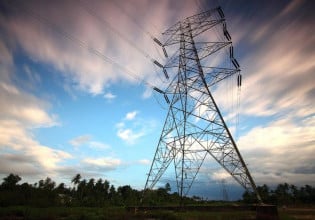Tunisia to Provide Low-Cost Alternative to Eastern Europe and Asia
Recent developments in Tunisia continue to point to the North African nation as an emerging economic alternative to both Eastern Europe and Asia in terms of the manufacture of electronics and power supplies. A number of factors are responsible for this trend, one of the most important of which is that the average wage in Tunisia is 10-20% lower than some nations in the European region such as Romania. Largely as a consequence of this wage environment, the landed cost (in Europe and North America) for electronic assemblies weighing 5lbs or more can be less expensive from Tunisia than China.
The recently released Global Competitiveness Report 2006-2007, issued by the World Economic Forum (WEF), listed Tunisia as the most economically competitive nation in Africa and the Arab region, and the nation was ranked 30th globally. Several American and European-based companies have already established a presence in Tunisia, including: Cisco, STMicroelectronics, Delphi, GE, Siemens, Valeo, Lucent Technologies, Lear, Alcatel, Microsoft, and Philips, as well as five out of the eight Tier 1 European automobile component suppliers. The authors of the WEF report noted that, "Tunisia reaps the fruit of significant institutional advances."
Among the most impressive of the institutional advances has been the development of the Tunisian education system, both in terms of public and vocational education.. The European Union (EU) recently announced that it will be increasing the funding for its program to assist in the modernization of Tunisian higher education due to the positive results achieved thus far. The number of university students has tripled in the past decade. In terms of general education, 25% of the population is enrolled in school or vocational education, and 95% of children are enrolled in school.
The promotion of a knowledge-based economy is also resulting in the quick assimilation of progress in technology. The Tunisian government is assuming the training costs for English-language teaching programs and computer science courses for university students. Numerous technological institutes have been established to increase the number of mid-level managers and to adapt training resources to the nation's needs, research and technical centers have been established for almost all business fields, technology parks have been set up with business incubators, and there has been an increase in the number of experts for quality control and certification. Overall vocational training capacity is expected to triple in the next five years. Each of these developments led to the above-mentioned WEF report ranking Tunisia 11th globally in terms of its education system. The cooperation of the Tunisian government in these endeavors is exemplified by the fact that 37% of the GDP is invested in education.
A recent announcement by the Tunisian National Tourism Office that it is opening a direct connection to Montreal, thus creating a simplified 7-hour trip between Canada and Tunisia, highlights the increased interconnections between the emerging North African nation and North America (with the United States and Tunisia having a history of strong foreign relations for more than two centuries), as well as the European region. In terms of simple logistics, most European capitals are within two hours of Tunisia. With impressive economic indicators in the areas of GDP growth (5% since 1987), Corporate Taxation (it is VAT free area), Imports/Exports (another tax free area), Inflation (an expected 4% rate in 2006), Unemployment (an expected rate of 13% in 2006), and especially the previously-mentioned wage environment, there is great potential for further power supply and electronic component manufacturing opportunities in Tunisia.






